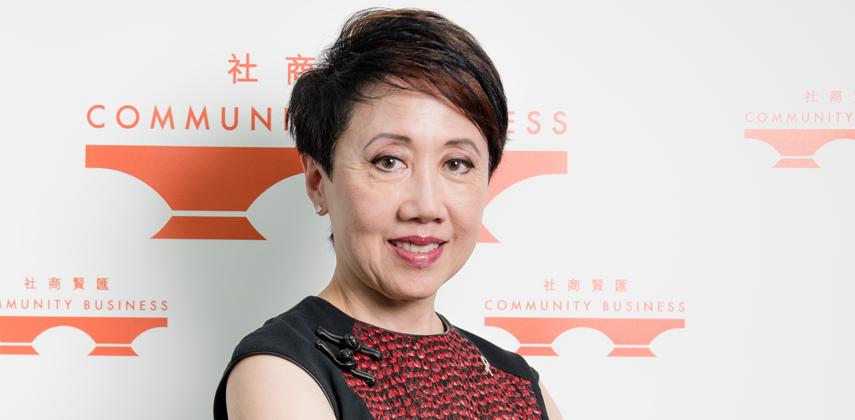Making social changes by harnessing the power of business to provide a positive impact on people and local communities is what non-profit organisation Community Business strives to achieve.
Established in 2003, Community Business is headquartered in Hong Kong and is also present in India and the United Kingdom. As an Asian organisation, it works mostly with multinationals across East and South Asia: China, Hong Kong, India, Japan, the Philippines, and Singapore.
“The context in which businesses operate is constantly changing,” says Fern Ngai, the organisation’s CEO. “The more advanced businesses are, the more progressive they tend to be. These companies are always looking at the horizon, anticipating change, and reflecting on what they should be doing, what their stakeholders, their employees, external stakeholders, and so on, are expecting.”
Community Business facilitates networks, conducts research and events, provides training, and consultancy among others. And according to Ngai, recent business topics like diversity and inclusivity have made some companies come to grips with what one needs to do to be more successful.
Because multinational companies are present in various different regions, they have focused strategies. Still, Ngai believes that, when rolling out those strategies, a tailored approach is often needed.
“You can’t just implement a global diversity and inclusion strategy locally. One size usually doesn’t fit all. For example, countries operate with different legal frameworks. There might be different business priorities on the ground. Therefore, while companies retain their overarching business strategies, we recommend they also take into account local dynamics, nuances, and priorities, and engage their people on the ground to see what really works for them,” says Ngai.
In addition, employees are voicing their concerns regarding issues that matter to them. Above all, they ask: where does my company stand on them?
“Taking a stance on the world’s most pressing issues – such as inequality, the environment, and poverty – is important for leading companies. Today’s leaders must be open-minded and people-oriented, and most importantly, listen to what’s on their employees’ minds,” says Ngai.
And for each new generation coming into the workforce, millennials, for instance, want to have a more inclusive culture. They expect more when it comes to having their voices valued.
Ngai says that if they are dissatisfied, they also speak with their feet – they will leave their organisation to find a working environment where they feel respected.
According to Ngai, the business community is taking notice of this shift. That’s because, “it affects their competitiveness and ability to attract and retain their top talent.”
While the top-down organisation approach may not be dead, the flat-type model is what today’s employees expect. They view their leaders as approachable rather than just spending most of their time inside their offices.
“Leaders have to come out, be visible, engage, and to understand what’s on people’s minds. Having multiway communication channels really matters,” says Ngai.
In the past ten years, Community Business has started working in the area of LGBT inclusion in the workplace, but Hong Kong has, for the most part, made little progress on diversity and inclusivity in this .
Some companies go beyond what is expected of them in regards to providing more employment benefits and policies. But other local companies do everything by the book. If the law doesn’t provide certain benefits, they don’t do it – something which Ngai finds unacceptable.
“A study from Stonewall in the UK reveals that, for LGBT+ employees, if you have to cover up who you are, it can affect your productivity by up to 30 per cent because of the stress and exhaustion of not being your authentic self, or avoiding potential career opportunities,” says Ngai.
In Hong Kong, Ngai says that about 70 per cent of LGBT people are not “out” at their workplace so Community Business wants to work on these areas with companies that are already ahead of the curve.
In 2015, Community Business launched the LGBT+ Inclusion Gala Dinner in Hong Kong. It has also created an index in which it gives companies a credible tool to chart their performance and provides suggestions regarding areas for improvement. This year’s event saw a rise in the number of companies participating.
“When we talk about the importance of LGBT+ inclusion, some people ask: what does this have to do with business?” says Ngai. “A person’s sexual orientation or gender identity is about their identity as a human being, not about what they do in their personal life. When we show up for work, if we are able to bring our whole selves, and are valued for who we are, we are happier and become more productive, which ultimately contributes to business success.”


